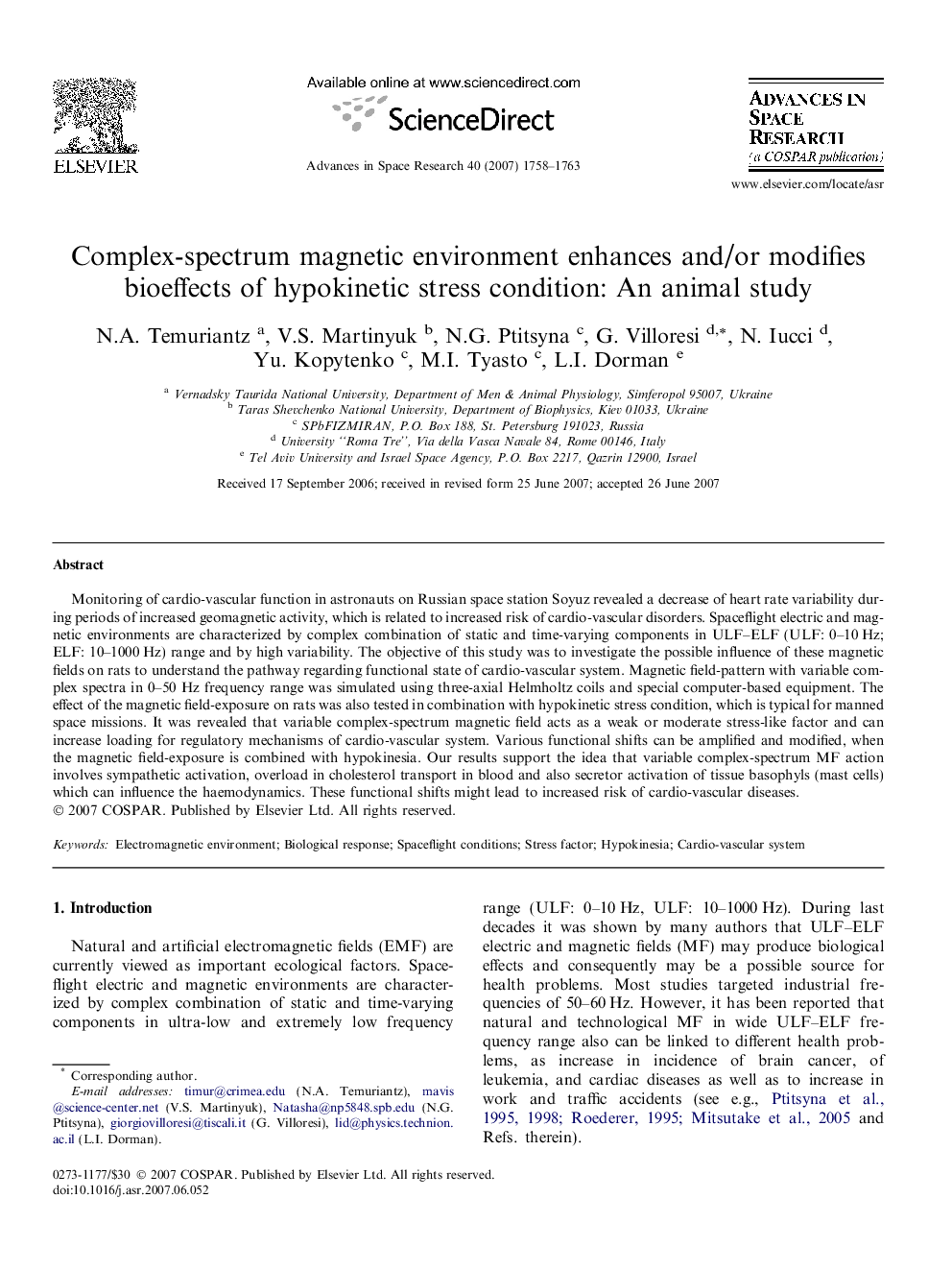| Article ID | Journal | Published Year | Pages | File Type |
|---|---|---|---|---|
| 1767829 | Advances in Space Research | 2007 | 6 Pages |
Abstract
Monitoring of cardio-vascular function in astronauts on Russian space station Soyuz revealed a decrease of heart rate variability during periods of increased geomagnetic activity, which is related to increased risk of cardio-vascular disorders. Spaceflight electric and magnetic environments are characterized by complex combination of static and time-varying components in ULF-ELF (ULF: 0-10Â Hz; ELF: 10-1000Â Hz) range and by high variability. The objective of this study was to investigate the possible influence of these magnetic fields on rats to understand the pathway regarding functional state of cardio-vascular system. Magnetic field-pattern with variable complex spectra in 0-50 Hz frequency range was simulated using three-axial Helmholtz coils and special computer-based equipment. The effect of the magnetic field-exposure on rats was also tested in combination with hypokinetic stress condition, which is typical for manned space missions. It was revealed that variable complex-spectrum magnetic field acts as a weak or moderate stress-like factor and can increase loading for regulatory mechanisms of cardio-vascular system. Various functional shifts can be amplified and modified, when the magnetic field-exposure is combined with hypokinesia. Our results support the idea that variable complex-spectrum MF action involves sympathetic activation, overload in cholesterol transport in blood and also secretor activation of tissue basophyls (mast cells) which can influence the haemodynamics. These functional shifts might lead to increased risk of cardio-vascular diseases.
Keywords
Related Topics
Physical Sciences and Engineering
Earth and Planetary Sciences
Space and Planetary Science
Authors
N.A. Temuriantz, V.S. Martinyuk, N.G. Ptitsyna, G. Villoresi, N. Iucci, Yu. Kopytenko, M.I. Tyasto, L.I. Dorman,
